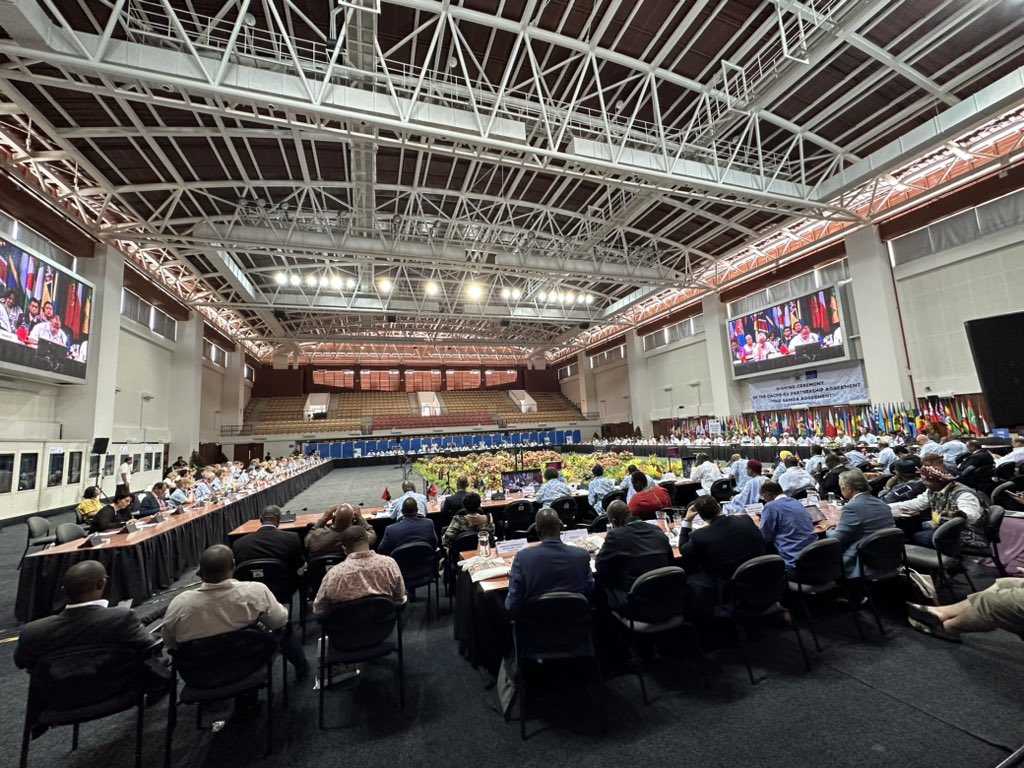Tonga did not sign the Samoa Agreement, that took place in Samoa last week.
Minister for Foreign Affairs, Fekitamoeloa ‘Utoikamanu, said that there is a requirement in order to formalise Tonga’s commitment to sign the agreement, and at the time of the signing, it had not been concluded.
“The impact of this, is that Tonga will not be able to access funding from the EU, until the signature is made,” she said.
Countries that don’t sign the Samoa Agreement by the end of December face the prospect of missing out on accessing funding from the European Investment Bank.
This is one of two potential ramifications facing the members of the African, Caribbean and Pacific States (OACPS) who chose not to put pen to paper – after 71 out of the 79 OACPS countries signed the new Partnership Agreement dubbed ‘Samoa Agreement’ in a historic signing ceremony in Apia, Samoa on 15 November.
The second potential consequence is the inability of the OACPS member states to attend the ACP-EU Joint Parliamentary Assembly in February next year in Angola.
The Agreement features a common foundation text and three regional protocols to ensure a focus on the specific needs of Africa, the Caribbean, and the Pacific region.
The Samoa Agreement will provisionally enter into force on 01 January 2024, replacing the Cotonou Agreement, which has been governing the ACP-EU relations since 2000 and which will expire at the end of 2023.
The Samoa Agreement prioritises human rights, democracy and good governance including gender equality and the rule of law. Social development and sustainable economic growth are and continue to be priorities, thus making the effective implementation of the Samoa Agreement key to ongoing efforts in building resilient environment and economies.
The signing in Apia will last for a period of 20 years, that embraces OACPS member states objectives with the European Union.
SOURCE: TONGA WIRES/PACNEWS














